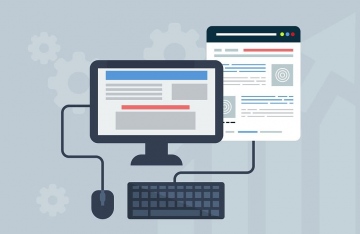Every day, internet users are pressured into signing up for social media accounts, credit card offers, and web store deals. At the very least, this means submitting one’s name and email; in some cases, it means submitting that information plus one’s full address, social security number, date of birth, and other sensitive information that could be utilized to mimic the user’s identity. Have you ever stopped to wonder what happens to your data after it is submitted to a website? Sometimes, it’s sold to third parties for marketing purposes, or worse – it’s used for fraud.
Data Brokers
In the early 21st century, Internet users commonly experienced spam e-mails, in which they received messages from companies and brands who’d gleaned their e-mail addresses from early data brokers. Contemporary data brokers are able to sell much more than names and e-mail addresses. Thanks to social media channels like Facebook and Twitter, data brokers can create a profile of a person’s religion, income bracket, favorite films & television shows, and frequently-visited restaurants.
Medical Phishing
Data brokers have been known to manage websites with the sole intention of gathering user data to sell. The firm Take 5 Solutions owns over a dozen health-related websites such as T5 HealthyLiving.Com and GoodParentingToday.com. The sites’ forums and chatrooms encourage users to discuss their medical history and children’s health. Take 5 Solutions gleans this information which is then purchased by pharmaceutical retailers.
Corporate Hackers
Personal web accounts aren’t the only way information can be taken. Web-based corporate services such as Cloud, e-mail, and user portals are at risk of being hacked if the proper firewalls and security systems aren’t in place. Too often, employees feel as though their workplace’s cybersecurity is automatically safer than their security at home. They might take more risks by e-mailing corporate credit card numbers or sending messages with personal information. It would be wise to have employees go through a course, like ones offered by Global Learning Systems, to learn about security and compliance in the workplace.
Exploiting Vulnerable Population
In addition to individuals’ medical history, data brokers purchase information related to personal finances such as poor credit scores, overdrawn bank accounts, and complaints on social media about student loans. This information is then sold to predatory loan companies and for-profit “debt relief” firms.
Who Else is Buying Your Data?
Acxiom, one of the world’s largest data brokers, has sold the data of more than 200 million Americans to marketing firms and retailers. The Federal Trade Commission first investigated Acxiom when JetBlue sold them passenger information, which was then sold to a military contractor specializing in aircraft. Data brokers like Acxiom commonly deny individuals’ requests to have their names taken off mailing lists.
The best way to keep data – and your company’s data – safe is by first making sure any network you use is protected against hackers. From there, the Department of Homeland Security recommends avoiding links sent by retailers via email and other messaging services. Before submitting sensitive information to a website, do some research about them. Reviews will help you determine whether or not you’re dealing with a company that wants to sell your data.




